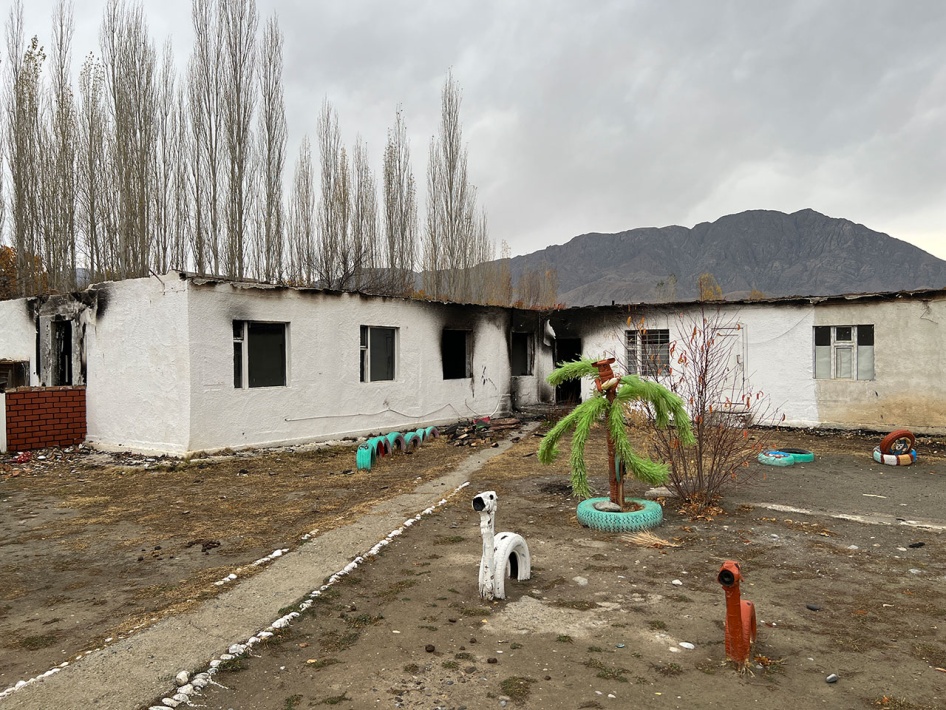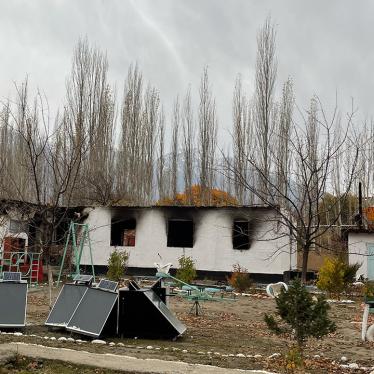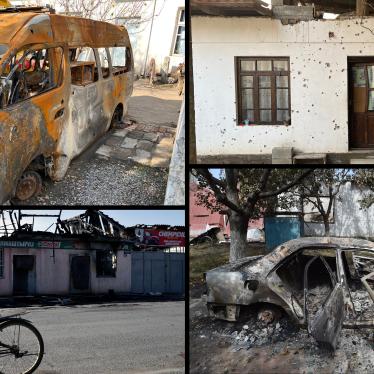In September 2022, at least 23 schools and kindergartens in southwestern Kyrgyzstan were attacked during a short but violent border conflict between Kyrgyzstan and Tajikistan. Some schools were damaged by shrapnel, and at least one was used as a military base by Tajik armed forces. Fifty-three other schools were converted into shelters to accommodate families as an estimated 140,000 people were displaced.
The education of more than 130,000 students was disrupted as 161 schools across the Batken and Osh regions were temporarily closed, according to the United Nations, with some children suffering psychosocial trauma.
In Tajikistan, according to Human Rights Watch’s report on the conflict, at least one school was burned down, affecting 450 children, and a teacher was reportedly killed as he attempted to protect his students during the hostilities.
These attacks were included in the report, Education under Attack 2024, by the Global Coalition to Protect Education from Attack (GCPEA), a coalition of UN agencies and partner organization to Human Rights Watch. The report found attacks on education rose by almost 20 percent in 2022 and 2023 compared to the previous two years. Government forces around the world, like those in Kyrgyzstan and Tajikistan, have occupied educational facilities, targeted schools and kindergartens with military weaponry, and burned, damaged, and destroyed buildings, forcing their closure and leading to months of lost learning.
Currently, of the 23 schools and kindergartens that have been damaged in Kyrgyzstan, at least 21 were rebuilt and reopened, with the government planning to build 34 new schools and kindergartens in the region.
Over the last seven years, there have been more than 20 border clashes between Kyrgyzstan and Tajikistan, as the border continues to be contested following a failure to fully demarcate it after the two countries’ independence in 1991. At least six children were killed in the last two clashes of 2021 and 2022, with dozens more injured.
Although Kyrgyzstan and Tajikistan are reported to have made significant progress in border demarcation since 2022, neither government has endorsed the Safe Schools Declaration, a commitment to protect education in armed conflict. The declaration commits countries to taking steps to safeguard education, including upholding international humanitarian and human rights law and using the Guidelines for Protecting Schools and Universities from Military Use During Armed Conflict.
Signing the Declaration, along with other steps to protect education, is the very least the two governments could do to protect their children’s futures.










